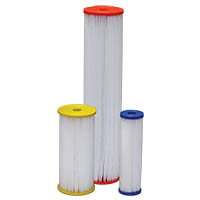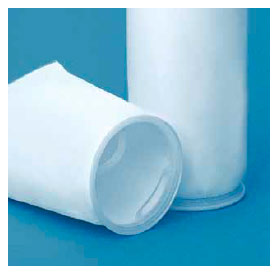Different Water Filtration Systems For The Restaurant Industry

Why A Water Filtration System Required in Restaurants
Water quality can have a significant impact on the success (or failure) of a restaurant. If the tap water smells like chlorine or if customers are served bitter-tasting coffee, it can lead to negative reviews. From ice makers to soda fountains and espresso machines, nearly for everything, a restaurant depends on clean, good-tasting water.
Water filtration systems for restaurants provide better quality, taste, and safety of food products. In addition, these systems can reduce appliance maintenance costs by eliminating high dissolved minerals, disinfectants, particulate matter and residue bacteria, which can result in scaling on internal parts, and corrosion of metal surfaces of the equipment.
Moreover, it diminishes the harmful impacts of using plastic bottled water, reducing the hazard to public health of the deadly chemicals such as BPA (Bisphenol A) present in plastics. Fortunately, there are a wide range of liquid filtration systems to meet the industry’s needs.
Types Of Water Filtration Systems For Food Service And Beverage Applications
Various commercial filtration systems from single-application systems to multi-application systems are available. By diagnosing the water issues and amending the proper filtration measures, restaurant owners can reduce water-related beverage quality issues and produce greater customer satisfaction.
Reverse Osmosis
One effective filtration system is reverse osmosis. In a reverse osmosis, or RO system, pressure is used to push water through a semipermeable membrane. The membrane acts as an ultra-fine filter, blocking a wide variety of contaminants, including sulfates, heavy metals, dissolved solids, and even chloride, which can add a salty taste to the water.
A reverse osmosis system is the ideal filtration system for applications that require high quality water. An ice maker, for instance, would greatly benefit from RO filtration because taste and clarity are important to the quality of ice. The system will remove very fine sediment and minerals, allowing for crystal clear ice every time. In addition, as the ice melts the taste of a beverage will not be affected.

RO filtration cartridge
Carbon Block Filters
Customers often want to drink purified water without the purified taste. Carbon block filtration removes unwanted or potentially harmful chemicals from water, restoring its fresh taste. These filters effectively remove chorine, chloramines, and even some types of bacteria from water before it makes its way into a customer’s food or drink.
While carbon filters can also filter out sediment, dirt can quickly clog the filter, resulting in lower pressure. For this reason, a sediment pre-filter is often added to a carbon block filter system to remove the sediment before it passes through the carbon filter.
Soda fountains require the perfect ratio of syrup to water to make delicious and refreshing drinks. Having clear, fresh, filtered water, then, is an important part of the equation. Water containing chlorine, sediment, and unwanted minerals can lead to flat, boring soda. Water filtered through a carbon block filtration system, on the other hand, will blend with the syrup and carbonation for the right amount of fizz and sweetness every time.
Sediment Filtration
Sediment filtration effectively removes the things we can see in our water. This is known as the turbidity, or cloudiness, in the water, which is caused by an abundance of suspended solids. However, sediment filtration does not remove smaller, unseen particles or contaminants like chemicals, heavy metals, bacteria, or dissolved solids. Consider these filters as a first line of defense for a water filtration system, used in conjunction with RO or carbon filters. This way, the sediment filter will trap the larger particles, keeping the other filters unclogged and functioning at peak performance downstream.
Coffee shops benefit greatly from sediment filtration. Some dissolved minerals can still make their way into the water, which is known to enhance the flavor of certain caffeinated beverages, including espresso. However, heavier particles will not be permitted. This keeps coffee and espresso equipment free from scaly buildup, which can affect not only taste, but performance as well.
Dishwashers will also function better with filtered water. When glasses are cleaned with water free of sediment, the result is a crystal-clear finish.

sediment filtration cartridge
Ultraviolet Light
In areas where water quality is lower, an ultraviolet light filter may be needed. These UV filters disinfect water by killing microorganisms such as harmful bacteria and parasites. However, UV filters are less effective when the turbidity of the water may be higher. For this reason, a sediment pre-filter is usually installed to remove the cloudiness in the water before it passes through the UV filter. This way, the water will be free of both sediment and harmful bacteria or organic matter.



